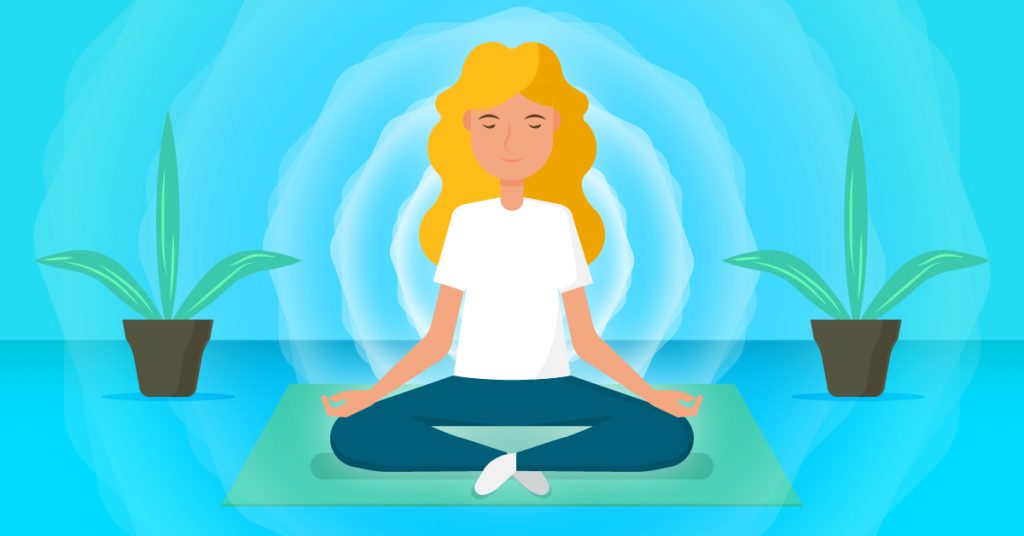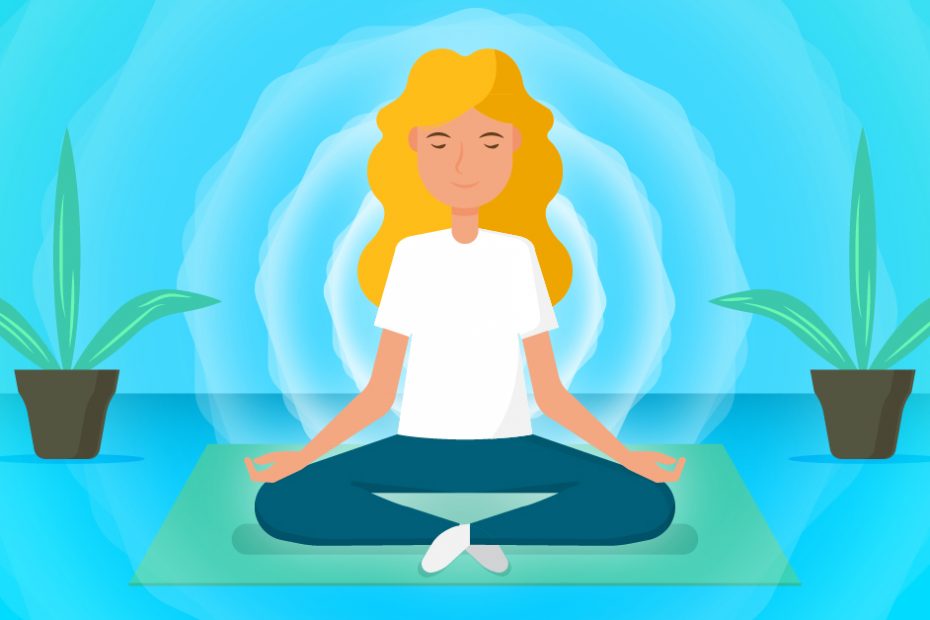
Even if you don’t experience it frequently, anxiety can be a challenging sensation to manage. It’s crucial to realize that fear is neither a sign of frailty nor a clue that anything is wrong with you.
There are numerous effective coping mechanisms for anxiety, which everyone at some point in their lives experiences to varying degrees.
Depending on your unique circumstance, you can manage your anxiety through yoga and meditation in addition to making healthy choices part of your daily routine.
Understanding Anxiety
When people have intense and persistent sensations of fear and worry, it is known as an anxiety disorder. It can be challenging to function even in situations that appear trivial since these worries can be so acute that they interfere with daily living and become crippling.
Males and women can both suffer from anxiety disorders, but women are more likely than men to do so. Under this broad term, there are several distinct types of anxiety disorders: Panic Disorder, Generalized Anxiety Disorder (GAD), Social Phobia, Obsessive-Compulsive Disorder (OCD), Post-Traumatic Stress Disorder (PTSD), Separation Anxiety Disorder, And Specific Phobias Like Arachnophobia (fear of spiders) or Aviophobia (fear of flying).
Another term for anxiety is “generalized” or “free-floating,” which refers to a state in which the sufferer feels anxious all the time rather than just occasionally exhibiting a specific symptom.
What is Meditation
Meditation is a technique for calming your mind and increasing your concentration. Being conscious of the current moment without making judgments about it is typically related with it.
You may free your mind of distractions and eradicate undesirable habits like anxiety or tension through meditation. Self-reflection and proper processing of new information are both possible outcomes of regular meditation practice.
Practice Meditation for Coping With Anxiety
You may relax your mind and lessen tension by practicing meditation. Anywhere, at any time of day, for any amount of time is possible. It only takes a few minutes of calm time to practice meditation, which is suitable for both solo and group practice. The advantages of meditation go beyond the purely physical; it teaches you how to manage the negative ideas that trigger feelings of fear or concern, which will help you deal with anxiety.
Including Yoga in Your Daily Routine
Another excellent method to unwind and reduce stress is through yoga. Yoga may be practiced anywhere, including at home, and is excellent for enhancing your health.
You can practice a variety of yoga styles, but sun salutations are one of the most straightforward. Sun salutations are an illustration of “vinyasa flow” yoga, which consists of poses that flow into one another with little to no break. As a result, once you master one stance well, you’ll be able to transition effortlessly into a different one without having to give it any thought. Sun salutations are so well-liked because of how simple they are to perform: they are simple enough for novices to learn while still being difficult enough for seasoned practitioners looking for a change of pace.
Breathing Exercises
A fantastic approach to relax the body and mind is to practice deep breathing. They can assist you in de-stressing, letting go of tension, and shifting your attention away from stress or concern. You might feel more in control of your emotions by engaging in breathing exercises, which is crucial when battling anxiety.
Here are various methods for breathing:
- Breathe deeply and slowly through your nose, holding each breath for four to six seconds.
- Count to 10 while taking a deep breath in, hold it for two counts, and then gently let it out through pursed lips as you count back up to ten.
Take Time To do Nothing
Even though it might seem contradictory, finding some downtime is a terrific way to decompress. Yoga and meditation are two practices that can help you connect with your body and mind, but it’s also necessary to have some alone time to reflect on the things that are most significant right now, away from the rush of daily life.
Being idle is difficult, especially if you’re used to being active all the time. But if you make it a priority in your life, you’ll discover that you feel calmer when everything else goes as planned.
Take A Walk With Nature
The advantages of walking outside are numerous. Going for a walk outdoors may help you feel more energized, reduce stress, and get a better night’s sleep, according to research. Moreover, mounting research suggests that spending time outdoors may potentially help people combat depression.
If you don’t have access to parks, you may visit a nearby coffee shop or bookshop when it’s not as busy (or too loud), such during the morning or evening. You’ll have more time to unwind because you won’t feel hurried or overrun by onlookers.
You Can Get Through Challenges
You may care for your physical, mental, and emotional health at this time by engaging in regular exercise, eating good and nourishing foods, taking care of your skin, and doing things that stimulate your brain such as memory training. Spending time with loved ones who will listen to you without passing judgment is another important aspect of taking care of your emotional needs.
You can develop coping mechanisms for anxiety that are effective for you. It requires effort and practice, but the reward is great. Learning to meditate and take care of yourself in a way that works for you is the key.
